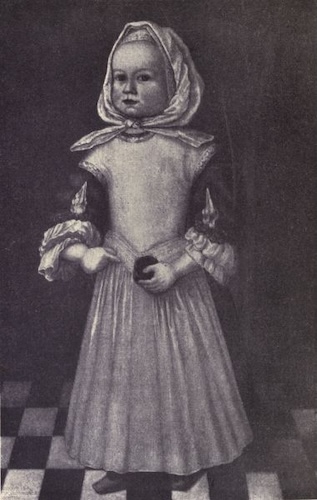In colonial America, childhood looked very different than it does today. Kids played important roles in their families and communities from a young age. Their experiences depended heavily on where they lived, their family’s status, and whether they were free, enslaved, or Indigenous.
Daily Life and Responsibilities
Most colonial children were expected to work alongside adults. On farms, boys helped with planting, feeding animals, and gathering firewood. Girls helped with cooking, cleaning, and caring for younger siblings. In towns, children of tradespeople often became apprentices, learning a craft like shoemaking, printing, or blacksmithing.
Play was limited but still important. Kids made simple toys, played games, and sometimes attended social or church gatherings with their families.
Education varied greatly. In New England, many children—especially boys—learned to read so they could study the Bible. In the Southern Colonies, education was less common outside of wealthy families. Most girls received little formal education unless they came from a wealthy background.
Limitations and Challenges
Colonial children had few rights and little independence. Most decisions were made by adults, and strict discipline was common. For enslaved and Indigenous children, life was even harder.
Enslaved children often began working at a young age, doing chores or assisting adults in fields or homes. They were considered property and could be sold or separated from their families.
Indigenous children faced disruption from colonization—some were taken to mission schools or forced to change their language and customs.
Many children did not survive to adulthood due to disease, accidents, or poor living conditions. Despite their importance in daily life, children were rarely included in decisions that affected them.

Contributions to Colonial Society
Children were vital to colonial life. Their labor helped families survive and communities grow. Some boys who apprenticed in trades became skilled craftsmen or printers who shared important ideas. Girls who learned household skills helped keep families and communities running.
Even at a young age, colonial kids helped pass down stories, traditions, and skills. In many ways, they were the future builders of colonial society.
